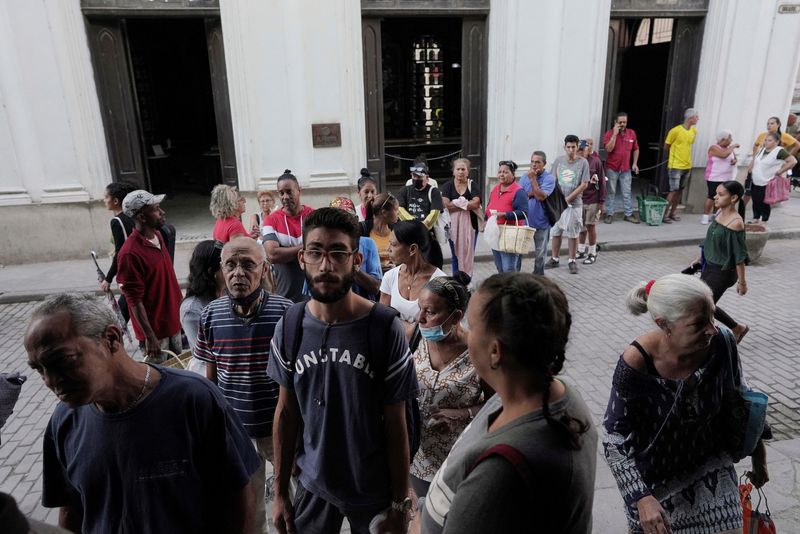HAVANA (Reuters) - Cubans head to the polls Sunday to vote for the 470 lawmakers who will represent them for the next five years in the country's National Assembly.
The legislative elections are the first since Cubans overwhelmingly approved a new constitution in 2019 and set the stage for a subsequent vote, by the National Assembly, to determine who would be the country's president.
Here is how it works and why it matters:
WHAT ARE CUBANS VOTING FOR ON SUNDAY?
Voters receive a ballot at their respective voting station that lists the candidates for the National Assembly in their district. There are no opposition candidates.
A voter may vote "For All" of the candidates on their ballot, for several, or for only one. Citizens may also choose to abstain from voting, or invalidate their votes.
Those candidates elected Sunday will serve for five years and do not receive a salary.
WHO DETERMINES WHICH CANDIDATES APPEAR ON SUNDAY'S BALLOT?
In Cuba, candidates for the National Assembly are selected by commissions composed of members from groups representing various sectors - including workers, university students, and small farmers.
Criteria for selection include merit, moral authority, popular acceptance and "adequate social participation." As many as half the candidates may be representatives elected in November to municipal assemblies.
Prospective candidates chosen by the commissions are confirmed by a majority show of hands by the local municipal assemblies before they advance to the ballot.
There are 470 candidates vying for 470 open seats.
WAIT. IF THERE ARE 470 CANDIDATES FOR 470 OPEN SEATS, IS A VOTE EVEN NECESSARY?
Cuban law requires a winning candidate receive "more than half the number of valid votes emitted in the municipality or electoral district."
If a candidate does not reach that threshold in Sunday's vote, Cuba's "Council of State," the legislative leadership, may opt to leave the seat vacant, defer to the municipal assembly to select an alternate representative, or hold new elections. Lawmakers may serve up to two terms.
WHAT IS AT STAKE HERE?
The fresh crop of lawmakers will confront a Cuba in crisis. A sputtering economy has led to shortages of food, fuel, medicine, and electricity, contributing to protests in July of 2021 believed to be the largest since former leader Fidel Castro's 1959 revolution.
Sunday's election will be closely watched for its rate of abstention, which has been rising in recent votes, alongside social unrest.
Lawmakers will convene within 45 days of Sunday's election and vote for the president of the Republic of Cuba, selected from among their ranks, as well as legislative leadership.
Incumbent President Miguel Diaz-Canel is widely expected to be re-elected by lawmakers.
IS CUBA'S SYSTEM DEMOCRATIC?
Cuba's elections are criticized by some outside observers as lacking in transparency or credible opposition and for being beholden to the Communist Party, which is labeled by Cuba's 2019 Constitution as "the driving political force of society and the state."
Cuba defends its single-party system, saying it promotes unity. By outlawing political campaigns, it says it has eliminated the corrupting influence of money in politics.
Cuba also says its system for selecting candidates is more inclusive than elsewhere. More than half its candidates are women, and 45% are Black.
There is no international oversight of elections in Cuba.
